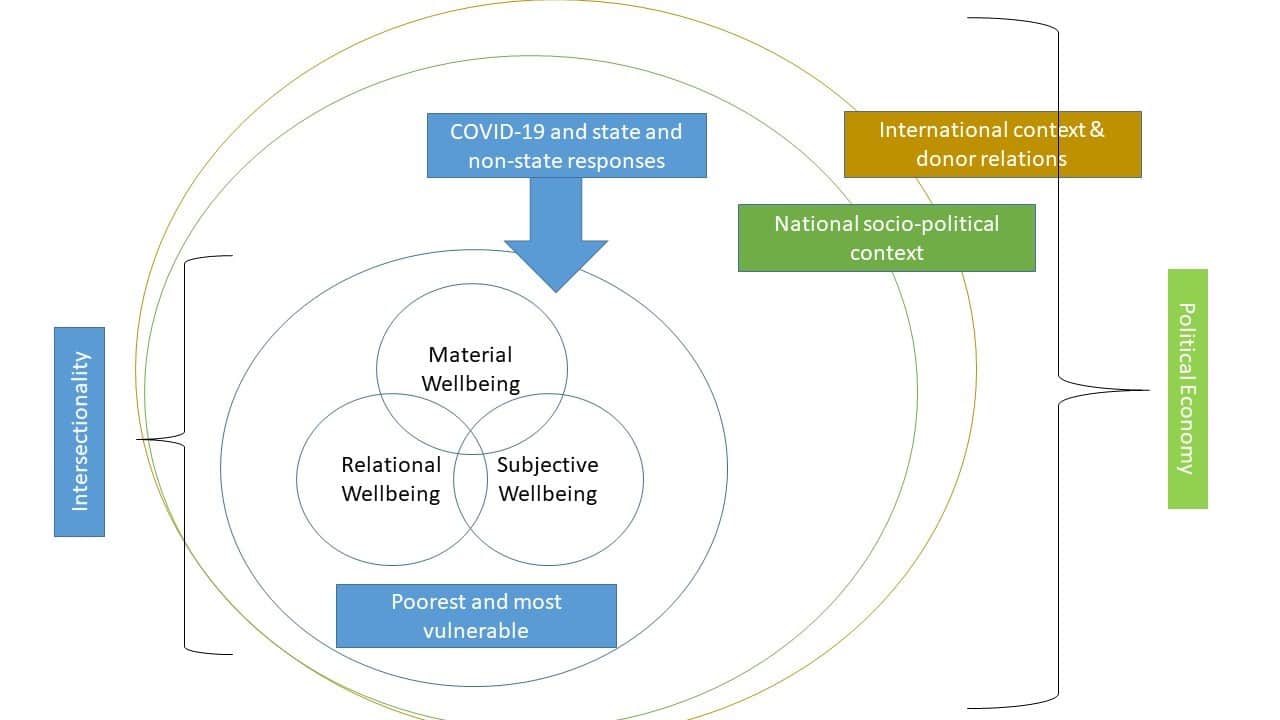About the research
Rwanda’s COVID-19 response, driven by President Kagame, has been considered as robust and rapid. It imposed a two months nationwide lockdown and its use of high-tech innovations such robots and drones has received much attention. However behind this glamour the impact of the strict containment approach has been devastating for the poor and has raised human rights concerns. Unemployment has increased by approximately 40% during lockdown and poverty is expected to increase as much as 27%. In response the government, in cooperation with development partners, has rolled out cash transfers, food distribution as well as business stimulus plans targeting the informal economy. We will look into how these mitigation measures have affected the wellbeing of Rwanda’s poor and vulnerable.
Planned activities
The research will adopt the following analytical framework:

We have translated our analytical framework into the following research phases:
- Socio-economic and political context analysis (focusing on the state of the economy, inequality and legitimacy of political institutions in Rwanda).
- Mapping of Covid-19 mitigation responses (by (national, regional, local) state and non-state actors) paying specifc attention to measures implemented in Kigali and those in the Western Province.
- Identifcation of specifc vulnerable groups for in-depth case-studies of social and spacial equity issues in times of COVID-19.
- Equity assessment (in formulation and implementation) of identifed policies/programmes: how have they affected the material, relational, subjective and collective wellbeing of the specifc groups selected in phase 3 (in the short and long term)?
The research involves the collection of data using the two methods highlighted below:
- Key stakeholder interviews
- Document analysis
